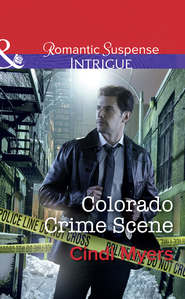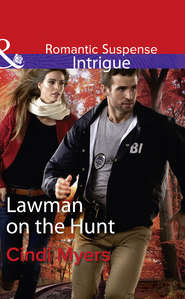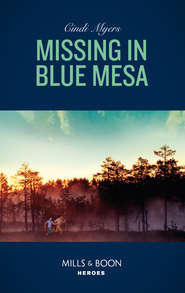По всем вопросам обращайтесь на: info@litportal.ru
(©) 2003-2024.
✖
What She'd Do for Love
Автор
Год написания книги
2019
Настройки чтения
Размер шрифта
Высота строк
Поля
He rubbed the back of his neck, as if trying to massage away a cramp. “I have mixed feelings about it. Part of me wishes they’d found a way to work things out and stay together. But Mom says she was unhappy for years. She wanted to stay in one place—make friends, have a job, join clubs. I thought she could have done all those things and stayed married to my dad, but she says no.”
“What does your dad say?”
“Not much. He’s always been pretty stoic.”
“Your mom must like having you close to her.”
“She does. And she does seem very happy with her new life. So maybe you’re right, and this is for the best.” He waited while the server refilled their coffee. “She’s coming for lunch on Saturday. She says she wants to see where I live. I’m afraid she’s going to be disappointed.”
Christa stiffened. “Does she have something against small towns?”
“No. She’ll love Cedar Grove, I’m sure. But my apartment is just a furnished rental, nothing fancy. I know she’ll expect better, but it doesn’t make sense for me to spend money on a house when I’m not going to be here that long.”
Such logical practicality seemed so cold to her. How could he feel at home when even his furniture wasn’t his own? “Where do you think of as home?” she asked.
“I don’t really think about it.” He pressed the back of his fork into a few stray crumbs on his plate. “I’ve learned to be content wherever I am.”
“Do you think you’ll ever want to settle down? I mean, if you have a family...” She let the words trail away. Maybe she was getting too personal.
“Maybe then I would want to find one place and grow roots,” he said. “Moving so often was tough when I was a little kid. I was always the new guy, always trying to catch up. On the other hand, it taught me to relate to a lot of different kinds of people. I grew used to the moves, even learned to like them.”
He sounded so matter of fact and upbeat. But she remembered his comment about not wanting to go back to an empty apartment. Having no deep connections to other people implied a loneliness she couldn’t begin to imagine.
She didn’t want to feel sorry for Ryder. She didn’t want to empathize with a man who was turning her world—her connections—upside down. But she was drawn to him in spite of wanting to hold back. “We should talk again, after I’ve had a chat with my father,” she said. “Though I don’t think he’s going to change my mind about this project. Or keep me from fighting it.”
“I’m happy to talk with you anytime.” His eyes met hers, and she read a kaleidoscope of emotions in their depths—sadness, determination, sympathy, and maybe even affection. She had to look away, afraid of what he might read in her own eyes. “Just remember, Christa. I’m not out to hurt you or your family or anyone in this town. I really do want to help.”
The words sent a shiver of apprehension up her spine. Wasn’t there a saying about people who were guilty protesting too much? Ryder was hiding something from her, she was sure. But she couldn’t imagine what that might be.
* * *
THOUGH RYDER LINGERED over coffee with Christa as long as possible, by 8:30 the crowd at the café had thinned and Etta Mae was starting to wipe down tables and stack chairs. “I guess we’d better go,” Christa said, pushing out of the booth.
“I guess so.” Admittedly he was reluctant to end the evening. Though he’d learned over the years to talk to almost anyone about anything, seldom did those conversations delve as deep as his discussion with Christa tonight. He hadn’t talked about his parents’ divorce with anyone before. Knowing that she understood his mixed emotions about the situation made him feel closer to her.
The parking lot alongside the café was almost empty when he walked Christa to her car. She stopped beside the sedan and looked up at the sky. “Living in the city, I’d forgotten how bright the stars could be,” she said.
He joined her in admiring the night sky, spangled with glittering stars. A memory of another night, standing under a similarly bright sky, hit him like a physical pain. “When I was six, we moved from Virginia to Kyoto,” he said. “I caught the flu on the transport over and was pretty miserable by the time we got there. I had a meltdown, crying and screaming that I wanted to go home. To calm me down, my mom took me outside and told me to look up at the stars. She’d been teaching me the names of the constellations, and she pointed out that I could see some of the same ones in the sky over Japan as I could in the United States. It was like seeing old friends who’d be there wherever I lived.”
“Your mom sounds like a pretty smart woman.”
“I guess she is.” He shook his head. “Funny—I hadn’t thought of that in years.”
“It’s a good memory to have.” She touched his arm—the briefest brush of her fingers, yet the sensation lingered, a warm acknowledgment of the connection they’d shared. “Good night, Ryder. Thank you for the coffee.”
“Thanks for the talk.”
He waited until she’d driven away before he climbed into his truck and started the engine. He didn’t want to go back to his apartment, but he could think of nowhere else to go, so he took the long way home, down a back road that skirted the edge of town. He’d rented rooms above the garage of what once must have been one of the finest homes in town, a large Greek Revival home with stately columns and rows of tall windows. The garage sat to the side and a little behind the house, accessible from a side street. Ryder parked beneath the large live oak out front and made his way up the stairs to the suite of rooms that had been furnished in the 1970s, judging by the plaid upholstery and dark wood furniture.
He’d lived in half a dozen similar apartments since his college days. The outdated décor never bothered him. All he needed was a bed to sleep in and a comfortable chair in which to watch TV. But now he saw the rooms as his mother or Christa might see them: worn and sparse and devoid of personality.
He sank onto the sofa and studied the scarred coffee table and thought of the base housing they’d lived in over the years, which had ranged from cinder-block barracks in Mississippi to a neat, nearly new bungalow in Germany. His mother had transformed every one of those rooms into a home, hanging pictures and slip-covering furniture. Within a week of their arrival even the most foreign of places would seem familiar. What a gift she’d given them, with this ability to ease the transition from one place to another. He’d have to remember to thank her.
What would his dad do, now that he didn’t have Mom to work her magic at each new posting? Maybe, like Ryder, he wouldn’t notice at first. He wouldn’t consider furniture or pictures important. But a man who had had his family around him for years was bound to be lonely now.
Ryder pulled out his phone and punched in his dad’s number. It was only a little after eight in Wyoming, not too late to call.
“Hello.” His dad’s voice was brusque. The voice of command.
“Hey, it’s Ryder.”
“Hello, son. Is everything all right?”
“Everything’s good, Dad. I just thought I’d call and see how you’re doing.”
“I’m well. I was thinking of calling you tomorrow, in fact. I’m moving to a new posting and wanted to give you my new address and contact information.”
Ryder relaxed. “Where are you headed?”
“D.C. It’s a very coveted posting and I was lucky enough to snag it.”
“Congratulations.”
“You’ll have to come see me once I’m settled. It’s a great town—lots to see and do.”
“Maybe I’ll do that, though I doubt I’ll be able to break away from this project for a while.”
“Where are you again? Texas, I know, but where?”
“Cedar Grove. It’s a small town outside of Dallas.”
“Your mother is in Dallas now.”
“I know. I drove over to see her a couple of times, and she’s coming here this weekend. She’s looking well.”
“Your mother has always been an attractive woman.”
“Yes, she is. She seems happy.”
“And I’m happy about that. I know she blames me for what happened, but when we married she knew the kind of life I had to lead. She went into it with her eyes wide open. She couldn’t expect me to give up a career I’d put years of my life into, simply because she changed her mind.”
“Dad, you don’t have to justify yourself to me.” The last thing Ryder wanted was to be caught between his parents.
“I know, son. You were always the easiest of the kids. The girls would carry on and cry crocodile tears every time I announced a new posting, but you always took it in stride. Too bad you didn’t opt for a military career. You’d have been good at it.”
He’d been a “good little soldier.” Ryder remembered how proud he’d been when his father used those words to describe him. But a military career wasn’t for him. He didn’t want a life that was so regimented, where other people made most of his decisions for him. “This is a better fit for me,” he said. “You should come down and see me sometime, Dad. The country’s wide open, with lots of ranches, and good people.”
“Maybe I’ll do that. I need to get settled into the new posting first. Tell your mother I said hello when you see her.”











